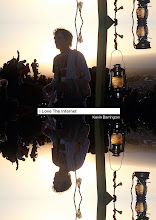The criticism began almost immediately after polls closed in the recent elections to the European Parliament. Fewer had turned out than ever: a third of Brits and Dutch, under a quarter of Poles and less than 20 percent of Slovaks. Surely, goes the conventional view, such blatant voter apathy betrays deep disillusionment with the European Union. Brussels, charged Euro-skeptics, is a distant technocracy out of touch with the common people. Euro-federalists agreed, but responded that the solution is to "democratize" the European Union—by which they meant creating an elected European Commission president, pan-European rather than national slates of parliamentarians and multilingual debating forums. The solution to dysfunctional democracy, in this view, would be even more democracy.
Yet all this is too pessimistic. Elections aren't perfect anywhere. The fact that 43.4 percent of Europeans—around 160 million people—turned out to vote for a body of politicians that allegedly "no one cares about" is actually quite remarkable. Surely, American commentators should not cast stones: turnout in midterm U.S. elections is generally lower. Even more important, prophets of a Euro-malaise miss the most important fact about EU democracy: European elections are not about Europe. In the EU, even more than elsewhere, all politics is local. Most voters said they ignored Europe and focused on national issues like unemployment, which was a top concern for 57 percent of Euro-voters, economic growth (32 percent) or pensions (31 percent).
A sizable minority vented its frustration by throwing votes away in protest—casting its lot with extreme right-wing parties. In Britain the Tories, weakened by scandal over parliamentary expenses, and Labour, dragged down by Gordon Brown's unpopularity, did poorly. Others voted Green to poke established Socialist parties. Right-wing parties did particularly well, fueled by anti-immigrant and anti-Islamic sentiment, fears about the economy and disenchantment with high taxes. In Sweden the "Pirate Party," formed to advocate unrestricted access to all audiovisual and Internet piracy, won 7.1 percent of the vote.
But little of this was aimed at Europe. Except in perennially Euro-skeptic Britain, uniquely anti-European parties fared poorly. Declan Ganley, leader of the "Libertas" party—the man almost single-handedly responsible for mobilizing to defeat the EU's Lisbon Treaty in the Irish referendum last year—was soundly defeated and will now retire from politics. The Irish referendum was reversed; polls indicate the treaty is set to pass in a second Irish vote.
It is time to rethink the EU's obsession with democratic perfectionism. In 2002, Brussels insiders sought to reach out to citizens with an ill-fated "European constitution" filled with idealistic language, culminating in unruly referendums. This time, the EP spent €18 million on a public-relations campaign, culminating in a Belgian astronaut announcing on TV that he was casting his absentee ballot from space. None of it generated meaningful public participation.
Europe's self-appointed democratizers need to step back and take more seriously how voters have responded to such initiatives. Meaningful mass democracy at the European level is counterproductive, not simply because Europeans lack a common language or identity, but because millions of Europeans have no interest in discussing banking deregulation, farm subsidies and other everyday issues of European politics. Why should they, when it only distracts them from the pocketbook issues they really care about? Citizens prefer that Europe be managed quietly by national and Euro-parliamentary politicians.
Elitism by another name? Not at all. The lack of enthusiastic public participation does not render the EP illegitimate or ineffective. Polls consistently show that Europeans trust EU institutions, including the parliament, more than corresponding national institutions. Large majorities want the EU to take on new tasks, most notably foreign-policy cooperation. Except in a few countries, support for Europe as a whole remains relatively high. The European Parliament is, moreover, leaner, cleaner and greener than national legislatures, encumbered as national bodies are by campaign-finance scandals, party bureaucracies and industrial interests. While it is often hard for the national governments of 27 countries to agree on legislation, once they do, the parliament tends to consider it efficiently. The EP effectively advocates consumer and environmental protection.
In the end, along with the 27 national governments, each headed by a democratically elected government acutely sensitive to public opinion, elitist tendencies are kept in check. The fact that its elections are less than ideal should not distract us from seeing that the EP, far from being a failure, is utterly unique. It is a responsive legislative body within an international organization—the only one in the world with a direct democratic mandate at all.
